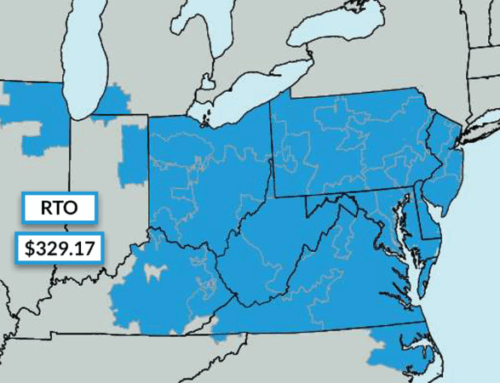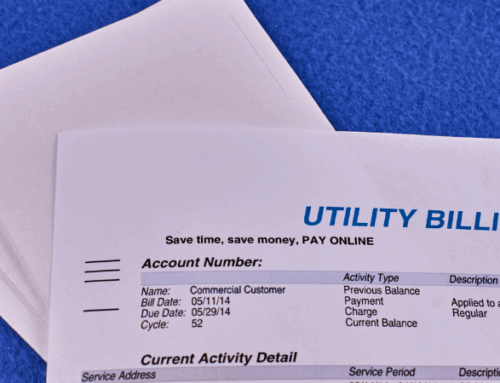Con Edison, the electric utility serving New York City’s five boroughs adn beyond, is proposing significant rate hikes for 2026, with electric bills expected to rise by 11.3% and gas by 13.4% across New York City and Westchester. For businesses and households already struggling with some of the nation’s highest energy costs, this represents another major cost hike. At the same time, Con Edison has dramatically increased disconnections, cutting off nearly 88,000 households in the first half of 2025 alone, highlighting the severity of New York’s utility affordability crisis. For business owners, energy brokers, and commercial users, these changes highlight the urgent need to plan energy procurement strategies for the years ahead.
Overview Of The Proposed Con Edison Rate Hikes
Con Edison has requested double-digit increases that, if approved by the New York Public Service Commission (PSC), will go into effect on January 1, 2026. The proposed rate increases affect 3.6 million residential customers and over 368,000 commercial accounts in NYC and Westchester County. In short, these hikes will affect both gas and electric costs according to the following:
- Electricity: 11.3% increase
- Natural Gas: 13.4% increase
A typical small business could see summer bills increase by about 8%, while larger commercial users, averaging 10,800 kWh per month with a 30 kW demand may face increases close to 9.8%.
Why Con Edison Rates Are Rising
Several factors are driving the push for higher utility bills:
Infrastructure Investment
Con Edison has spent more than $2.35 billion since last summer upgrading substations, transformers, and underground cables. It is standard for regulated utilities to seek a rate of return on capital investments through rate tariffs and price increases to end users.
Weather
Hotter summers are driving record electricity demand for cooling, straining an already aging grid. As seen in other markets, such as the significant PJM capacity rate increase, record-breaking peak demand is driving costs higher for consumers.
Reliability Needs
Equipment stress during heatwaves and storms has made system reinforcement a priority. The NYISO has developed several programs for battery energy storage systems (BESS) to help support the wholesale electricity grid through ancillary services. These additional investments are creating higher costs for retail customers.
Shareholder Returns
Con Edison has requested a 10% return on capital, among the highest in the nation, sparking backlash over who bears the cost of reliability and transmission system upgrades.
Disconnections And Energy Poverty
While Con Edison seeks higher rates, it has also stepped up disconnections, cutting off power to 2.5% of all households in just the first half of 2025. This represents nearly three times the total disconnections of 2024. Here are some key stats related to these disconnections:
- 16% of homes were behind on bills at the end of 2024, representing nearly $1 billion in arrears.
- Black and Latino households are twice as likely to fall behind and up to eight times more likely to be disconnected.
- Heatwaves have compounded the crisis, with New York City now the second-deadliest city in the U.S. for heat after Phoenix.
For many families, disconnection can mean serious health risks, particularly for those reliant on cooling equipment, medical devices, and refrigeration.
Political And Regulatory Response
The proposal has triggered widespread backlash. New York State Senator Pete Harckham has called Con Edison’s plan “tone-deaf and out of touch,” citing the strain on working families and seniors already struggling with high rents, groceries, and healthcare costs.
The Public Service Commission (PSC) has begun its 11-month review process, which includes public hearings and opportunities for stakeholders to comment. While some modifications may occur, utilities rarely walk away from rate hikes entirely, meaning businesses should still expect higher costs in 2026.
How Businesses Can Prepare for Higher Con Edison Bills
Businesses can’t stop the PSC from approving higher rates, but they can take steps to limit the financial impact. Here are some of the top ways to combat rising energy costs in New York:
Conduct An Energy Procurement Review
All businesses in New York should begin their review process by evaluating their current energy procurement strategy, if any. These strategies include developing custom energy supply plans based on your building’s energy consumption patterns, negotiating favorable contract terms with energy suppliers, and monitoring energy futures markets for buying opportunities.
Implement Demand Management
If you have an effective procurement strategy, you will intimately understand your energy usage patterns and peak demand. These factors play a significant role in driving up electricity costs, so looking for ways to implement peak shaving or demand-side management can directly impact your bottom line. Enrolling in a demand response program is another great way to tackle demand-side management while earning extra revenue for your business.
Invest In Energy Efficiency
After understanding your demand patterns, looking for ways to lower demand through energy efficiency is a great way to reduce costs. Replacing dated lighting systems with LEDS, installing energy-efficient HVAC systems, or simply deploying smart thermostats is a great way to reduce electricity usage and become more efficient.
Hire An Energy Broker
Finally, if you are not utilizing the services of an experienced energy broker, now might be the time to consider their expertise. In the past, when prices were low, you might have neglected using a broker to help you reduce energy costs. Today, as rates increase, markets become volatile, and the regulatory environment is more volatile, having an expert in your corner can significantly impact your energy expenses. Brokers can help you navigate complex energy rate tariffs, monitor commodity prices for target rates, and negotiate with energy suppliers on your behalf to help you save.
How Diversegy Helps Businesses Navigate Rising Costs
Con Edison’s proposed rate hikes come at a time when affordability is already a major challenge for New York businesses, making proactive energy planning more critical than ever. At Diversegy, we specialize in helping businesses navigate these challenges with tailored strategies that include detailed bill analysis, supplier comparisons, and competitive contract negotiations. Our experts also provide ongoing market monitoring, risk management, and utility bill audits to help you increase your bottom line. By partnering with Diversegy, you gain a trusted advisor who can guide you through volatile markets and help you anticipate future cost pressures. Contact our team today to schedule a free consultation and build a customized energy strategy for your business.



